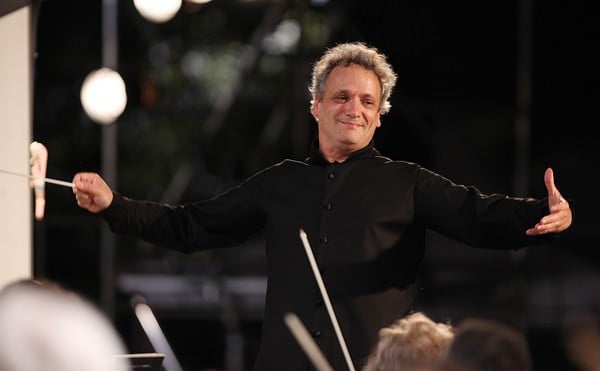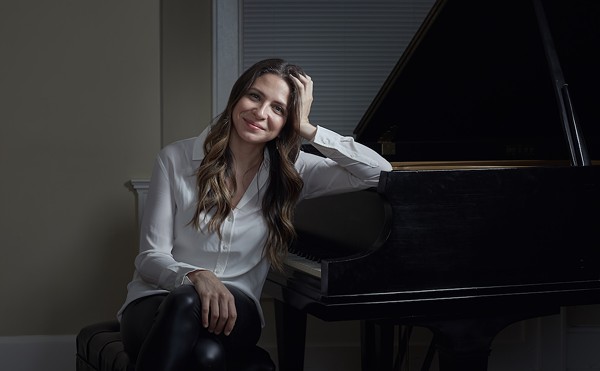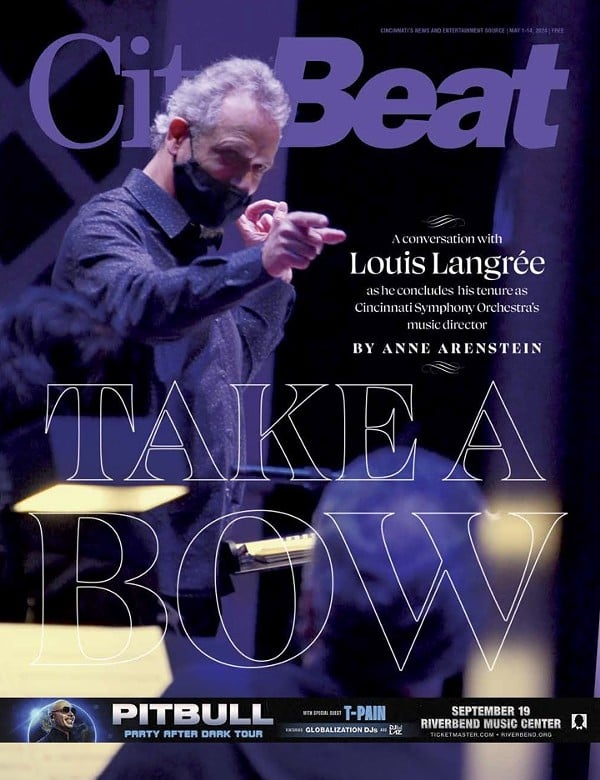If the best live Jam band you've experienced is sick, then Modern Jazz sextet Ray's Music Exchange is bubonic. You're invited to catch what the group has at the Southgate House on New Year's Eve.
New Year's Eve 2001: A Musical Celebration of the New Millennium is the first showcase assembled by Ray's Music Exchange Presents, a promotional arm for the band and its projects. The quality and quantity of this first show is impressive indeed. Ray's headlines a bill featuring neo-rhythm and bluesmen Heavy Weather; riddim-and-blues toastas, Admiral Walker; Oxford jam band jokers, Halias; aural hypnotists, Samsara Music Company; and compositional mad scientists Paul Hogan and Mike Barnhart's Sound Lab.
If you plan to attend, watch out for the band in the "Auld Lang Syne" slot. Too many acts on the jam band circuit are content rehearsing onstage the least-likeable traits of The Grateful Dead and those four guys from Vermont. But Ray's goes back further, and with greater depth. The band members are appreciative, yet quick to debate when I suggest their sound is Modern Jazz, or even Jazz/Rock Fusion. To be fair, Ray's begins somewhat left of Jazz.
Its music, a sun's core melding of many elements, has the complex simplicity of Bitches Brew-era Miles Davis, the ethnic rumble of Lotus-era Santana, and the experimental ferocity of Lark's Tongue In Aspic-era King Crimson.
I sat down with Ray's (bassist Nick Blasky, guitarists Joe McLean and Brad Myers, percussionist Matt Hawkins, set drummer Jason Smart and trumpeter Mike "Maddog" Mavridoglou) at Top Cat's in Corryville. The six would later play a post-concert show after jazzy organ droppers Medeski, Martin and Wood finished across the street at Bogart's. There we discussed a second Cincinnati Entertainment Award in as many years, historian Ken Burns' forthcoming PBS documentary Jazz, categorizing this group and the next CD — all before sound check.
CityBeat: I spoke with Maddog recently about how humbling and surprising it was to win the CEA in the Jazz category this year over the likes of Phil DeGreg, Art Gore and Mike Wade.
Joe McLean: That's just, I guess, the way it is. It's not right. For that category, we're not deserving. That's my opinion.
Jason Smart: I don't necessarily think it's wrong (the band is in the Jazz category), but some of those guys make a living doing straight-ahead Jazz, and we don't.
Brad Myers: (sighs) These days everything gets lumped into a Jazz category because there's no other place to put it. That's the most unfortunate thing. Everybody should go out and find out who the other nominees are.
CB: There is already some criticism regarding Jazz, the new Ken Burns documentary that begins airing on PBS (WCET-TV 48) on Jan. 8. Modern Jazz musicians and scholars feel slighted, wondering why the last 30-odd years of this music aren't discussed until the seventh and final show.
JM: Ken Burns came to it, he said, as a learning process. Like the baseball thing, the Civil War thing. The things he glossed over are the things that I listen to. The '60s and '70s Jazz — where things became freer and less defined as Jazz — are definitely more of an acquired taste than Louis Armstrong. I'm sure he talks to [Classical Jazz trumpeter and educator] Wynton Marsalis a lot.
Maddog: Look at the '30s and '40s. Back then, Jazz was pop music. Everybody knew it, and everybody loved it. I think, now, if there's anything that our kind of scene is doing, it's bringing that kind of thing into popularity. It's danceable again. There aren't too many people dancing to (Free Jazz saxophonist) Ornette Coleman. But now these elements are being brought back in. It's an improvised music, and it's a surging kind of music. I think it has the same kind of spirit as traditional Jazz did.
CB: Is it incorrect to say that Ray's Music Exchange is a Fusion band?
M: What the word means is fusing different musics together. Yeah, that's us.
JS: But in the old '70s sense, no (laughs).
M: Right. Fusion gets connected with Weather Report, Return To Forever ...
JS: Please don't call us nusion. We had that printed once.
Nick Blasky: It's still in print (smiles ruefully).
CB: Can you tell me about the follow-up to 1999's Alivexchange?
BM: That's basically what we're going to do after the New Year's show. We have a lot of good studio stuff put down. We also have a lot of really good live stuff. We're not really sure how we want to use all of it. The majority of the stuff is finished. It's a question of how we're going to put it all together.
CB: Working title?
JM: (pause) Mackin' on Yoda (all laugh). ©





